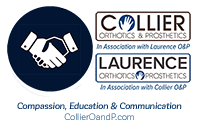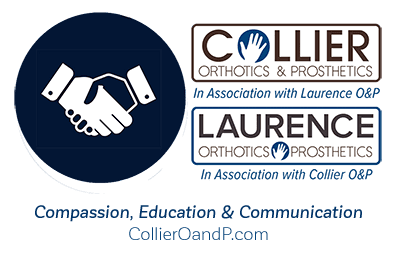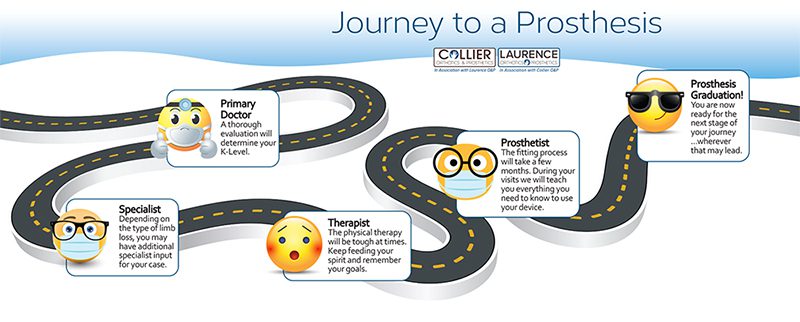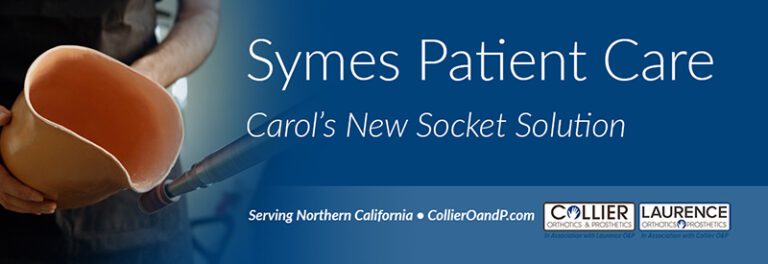Helping those with limb loss find a prosthetist
Amputees and those with congenital disorders who wear a prosthetic device typically have a long-term relationship with their prosthetist. If you have never worn a prosthesis, this is an outline of what you should expect during your journey.
Are you ready for a prosthesis?
Obtaining a prosthesis is usually a long term process. You need to prepare your muscles so they are in the right shape to utilize your new device. This usually means working with a physical therapist and other members of your care team to educate you about day-to-day living with a prosthesis. Having care team members that communicate is extremely important for a successful outcome with your prosthetic device.
If you decide having a prosthesis is the path you want to take, you will want to find a prosthetist to collaborate with on your care team. Your physician will provide the referral to be seen at our facility. The next step is for us to evaluate the best course of action for your daily living and future goals.
What is the best way to learn more about getting a prosthesis?
- Research Online – See our Patient Resources Guide
- Ask your Doctor
- Discuss with your Therapist
Before you can see a prosthetist, your doctor will need to:
- Document your current condition
- Diagnose your K-Level
- Collaborate among the members of your care team
After the appropriate device has been decided upon, you will continue your PT while your prosthesis is manufactured. During the fitting process, over multiple visits, your prosthetist fine tune your device socket and provide the training you need to get the most out of your new prosthesis.
Step 1: Documenting current condition
Your doctor will complete an evaluation checklist. This is when you should ask questions. This information will be the basis of the report being sent to your insurance company which ultimately determines the affordability of your prosthetic device.
If a replacement prosthesis is needed, describe the condition of current prosthesis or component and your recommendation based on your functional level evaluation.
Step 2: Diagnose your K-level
Your doctor will confirm your K-level which determines the type of device your insurance will approve. The K-level is based on your daily activities and current physical condition. it is possible over time that you can graduate to a higher K-Level if you continue to progress in your abilities.
Step 3: Team Collaboration = Improved Prosthetic Care
On your first visit, options will be discussed to find the prosthetic configuration that allows you to get back to your daily activities and meet your future goals. In addition to your doctor, your care team will consist of physical therapists and your prosthetist. Cohesive care during your rehabilitation will help you stay on track with your short and long-term goals to better improve your outcomes.
The team collaboration is a transparent process – the goal is patient education through communication with all members of the team. Collective input creates a clear plan which leads to higher patient satisfaction with improved functional results. After your final fitting, your prosthetic devices will need adjustments over time, so you will likely check in with your prosthetist once or twice a year.
Patient Resources
Every patient is unique, physically and psychologically and we have the experience and compassion to guide them through this journey. We have put together a list of resources of organizations and articles to help you and your family members.
Check out our patient and family resources.
Certification Boards
The American Board for Certification in Orthotics, Prosthetics & Pedorthotics (ABC)
abcop.org
info@abcop.org
703-836-7114
The Board of Certification/Accreditation, International (BOC)
Looking for a solution or a second opinion?
Contact one of our specialists at 916-979-9729 or email us.






